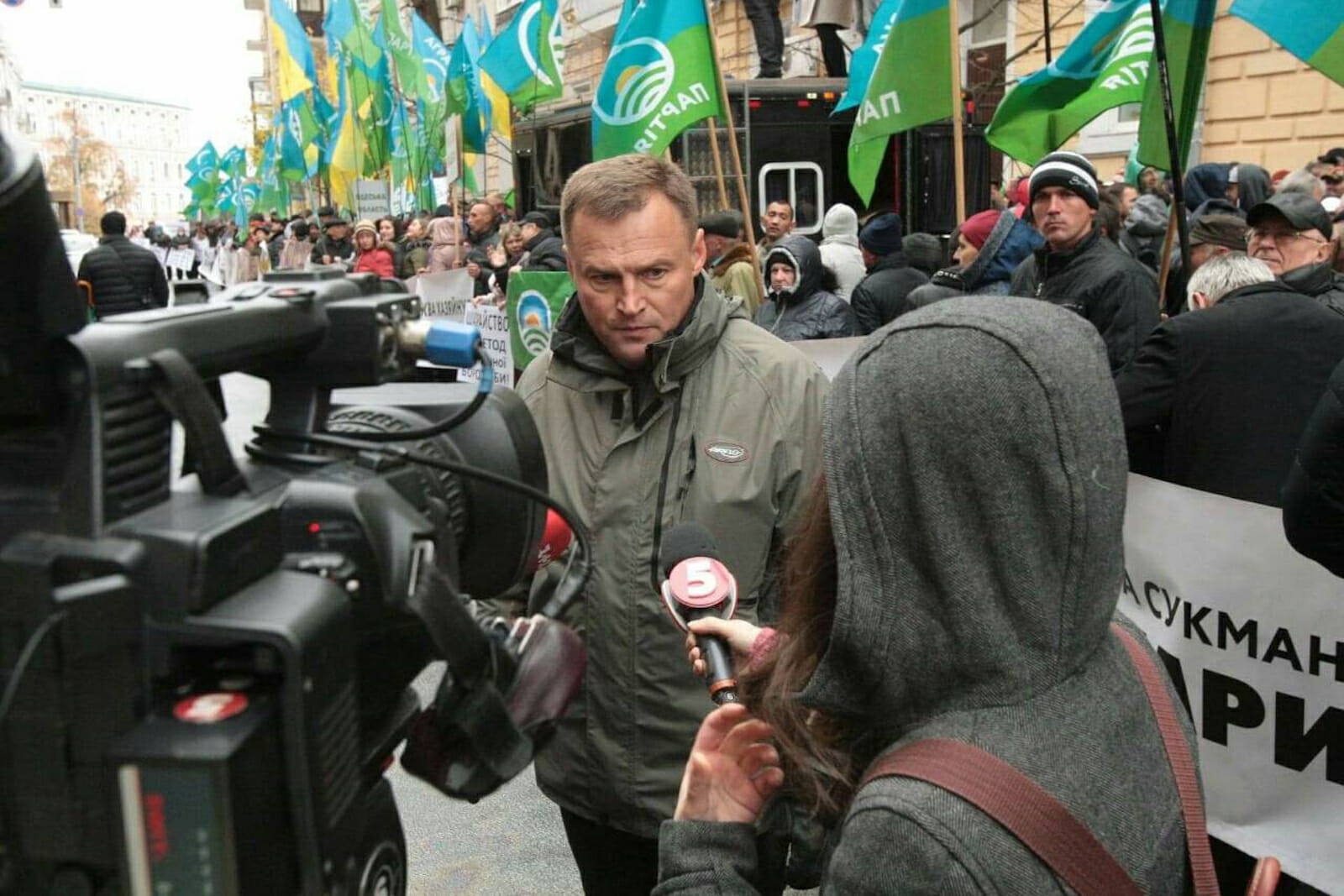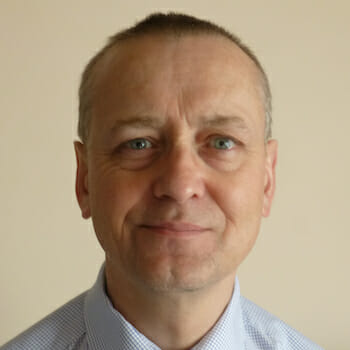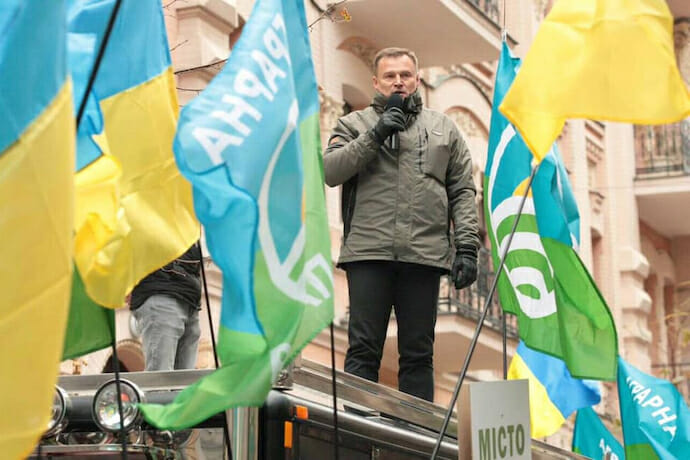
Ukraine’s Big Election Year
Over the next 12 months, there will be many elections with national polls around the world, from Belgium and Greece to India and Thailand, plus key European elections in May.
2019 is also a big election year for Ukraine.
Ukrainians will elect a new president in March and a new parliament in October. Even though the outcome of the presidential race is unpredictable, the candidates are already known and they include one presidential hopeful whose background, unusually for Ukraine, is firmly rooted in business rather than the murky world of Ukrainian politics.
Economist Vitaliy Skotsyk (@vitaliy_skotsyk) is 47 years old and a former CEO with close business links to the UK and the United States. Described as Ukraine’s answer to French President Emmanuel Macron, he has renewed the country’s Agrarian Party and is widely seen as a serious contender.
In a recent interview, Skotsyk outlined some of his key campaign policies and the “vision for Ukraine” that he hopes will propel him to the country’s top job on 31 March.
What in your opinion can Ukraine achieve in the next ten years?
In spite of the serious challenges which we are facing Ukraine today, I am confident that our country is on track to join Europe’s developed states. Ukraine has a great prospect of becoming one of the most advanced countries in the region if we can properly use our resources and carry out relevant political and economic reforms. The world is changing and basic necessities like fresh water, bread, and food become critical; this plays to the strengths of Ukraine as our country has resources to feed more than 500 million people. It is important for us today to learn how to exploit the ocean of opportunities during these turbulent times and take advantage of them. In ten years Ukraine will be a leader in the production of eco-friendly products, and the World’s breadbasket. This status can be achieved through developed agribusiness, which, with state support, can become the cornerstone of Ukrainian success. At the same time, an important step is the transition from raw material production to its processing, the revival of machine building aircraft engineering and the development of IT technologies. Ukraine will be in the first twenty countries with the highest index of human development. This is possible to achieve if Ukraine is free from the control of oligarchs and the impact of monopolies, and most importantly if the country is independent in energy resources, free from corruption, nepotism, and bribes.
What challenges are facing Presidential candidates today?
I would draw attention to three main challenges which are facing all of the presidential candidates today. Firstly, the uniqueness of the campaign; we are in a state of war and part of our sovereign territories are occupied. Secondly, the country needs fundamental reforms in almost all spheres of public life. Therefore, each candidate has to have not just a set of slogans, but the answers to those questions that are concerning all Ukrainians and they need to have a real plan of action for how to reform the country. Thirdly, there is a risk that the campaign will turn into a billboards competition, slogans and buckwheat to bribe voters, rather than a debate about principles and policies. Therefore, it is important to avoid the temptation to go the simplest way and to resist populism. Finally, all candidates are not equal. Those who are funded by the oligarchs have unlimited resources – financial, communications, and administrative support.
Today, almost all mass media, primarily TV channels, are divided into several groups, covering the activities of those candidates who are supported by their oligarchs. For Ukrainians television is still the main source of information, so their sources of information are likely to limit their choices from the outset. But, I remain hopeful that voters will prefer direct communication with candidates and, first of all, will pay attention to their programmes and policies, not the number of billboards or the presence on television.
What is your vision of Ukraine’s relations with Europe? What do you need to do on both sides to achieve your goals?
Ukraine is a European state with European values and aspirations. This is clear. Ukrainian resources can supply European markets and guarantee food security for the long term. We advocate the development of a mutually beneficial, pragmatic partnership in the interests of both sides – Europe and Ukraine. In order to establish this partnership, we believe that it is necessary to intensify dialogue about European integration, to achieve clear agreements which are backed up by real steps to develop investment cooperation and make joint efforts to return peace in Ukraine and restoration of territories affected by Russian aggression. In addition, Ukraine must intensify the fight against corruption. I believe that this is really possible if the country’s political establishment changes, enabling new leadership to reform the judicial system, create clear and transparent rules for business, a favourable investment climate thereby guaranteeing investment security.
It is a hard time for centrist, liberal politicians in Europe and in the world. How do you plan to deal with this issue?
Yes, the political forces of the centrist, liberal and even liberal-conservatives are experiencing difficult times all over the world today. It is difficult to compete with populists who promise everything. We feel it well in Ukraine because the vast majority of Ukrainian parties adhere to the principle of “we are for everything good and against everything bad.” They try to give an answer, often emotional, to situational questions, without thinking about the future and this is attractive for voters. But, I do not think that the situation is critical. Now there is a wave, and perhaps even a tsunami of populists. But, such waves ebb and flow. People need confidence in the future, and it can be provided only by real ideological political forces, which think in terms of policies geared towards future generations. The experience of Ukraine in this context is indicative where local communities are coming to the fore. Sooner or later, this movement will gain momentum and the centrist, liberal and liberal-conservative political forces will dominate in Ukraine.
What should be the role of the international community in the conflict between Ukraine and Russia?
Ukraine counts on the effective support of the international community, hopes for the introduction of a peacekeeping contingent under the auspices of the UN throughout the line of the Ukrainian-Russian border, and for further cooperation on the issue of strengthening sanctions. Also, analysing the hybrid nature of this war, which threatens not only the territorial integrity and sovereignty of Ukraine but also the peace and stability of the European community, it is extremely important to coordinate efforts more closely to tackle the problems of cybersecurity and counteract Russian propaganda.
How would you solve the problem of corruption in Ukraine?
Corruption today is a major obstacle for political, economic and spiritual development, and it threatens the national security of our country. Therefore, it is important for Ukraine to start a real fight to stamp it out. Formal creation of various anti-corruption organisations did not tackle the main problem, caused by imperfect legislation and a failed judicial system. So, first of all, we need to make changes to the existing anti-corruption legislation, namely to clearly define the concepts, types, and peculiarities of political corruption. Until we overcome corruption at the highest level, we will not stop illegal lobbying of the authorities, shadow funding of political parties, bribing voters and manipulating decisions. We have to call a halt to the state budget being used in favour of individual groups of influence.
Citizens should see that corruption will be punished and that this is inevitable, that punishment is strict, and that there is one law for all, regardless of position or status. Only then will we see real changes in the fight against corruption.


